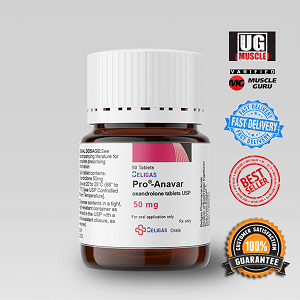Introduction to Letrozole
Letrozole, commonly known by its brand name Femara, is initially recognized for its role in the treatment of breast cancer. However, in recent years, it has gained considerable recognition in the realm of fertility treatments. Fertility specialists increasingly prescribe Letrozole to induce ovulation, particularly for women facing challenges like ovulatory disorders or Polycystic Ovary Syndrome (PCOS).
The primary mechanism by which Letrozole functions involves the inhibition of the enzyme aromatase. Aromatase plays a crucial role in the biosynthesis of estrogen within the body. By inhibiting this enzyme, Letrozole effectively reduces overall estrogen levels. This reduction triggers a compensatory response from the pituitary gland, leading to an increased secretion of follicle-stimulating hormone (FSH). Elevated FSH levels are pivotal for the maturation of ovarian follicles, which ultimately culminates in ovulation.
Letrozole’s rising popularity as a fertility treatment can be attributed to several factors. Firstly, studies have shown its effectiveness in inducing ovulation, particularly in women who have not responded to other treatments. Moreover, its side effects are often milder compared to other fertility drugs like clomiphene citrate. Additionally, Letrozole has a relatively short half-life, meaning it stays in the body for a shorter duration, which can be advantageous in minimizing prolonged hormonal imbalances.
The versatility of Letrozole extends beyond its ability to induce ovulation. It is also utilized in preparing the endometrial lining, making it more receptive to implantation, thereby increasing the likelihood of a successful pregnancy. This dual action—both enhancing ovulation and preparing the uterine environment—further solidifies its role as an invaluable tool in fertility treatments.
Hence, the introduction of Letrozole as an off-label fertility drug marks a significant advancement in reproductive medicine. Its efficacy and favorable side effect profile offer hope to many women struggling with infertility, particularly those with conditions like PCOS that complicate the ovulation process.
How Letrozole Works for Fertility Treatment
Letrozole, originally developed to treat breast cancer, has found a significant role in fertility treatments due to its ability to induce ovulation. The primary mechanism by which Letrozole aids in fertility involves the modulation of hormonal levels within the body. By inhibiting the enzyme aromatase, Letrozole reduces the conversion of androgens to estrogen, resulting in significantly lowered estrogen levels. This reduction in estrogen consequently sends a signal to the pituitary gland to increase the secretion of follicle-stimulating hormone (FSH) and luteinizing hormone (LH). Elevated levels of these hormones are crucial as they stimulate the growth and maturation of ovarian follicles, ultimately leading to ovulation.
Typically, the dosing regimen for Letrozole in fertility treatments involves taking the medication early in the menstrual cycle. The standard practice is to administer Letrozole for five consecutive days, beginning on either day 3 or day 5 of the menstrual cycle. The recommended dosage usually ranges from 2.5 mg to 5 mg daily, though healthcare providers may adjust the dosage based on individual patient responses. Patients undergoing this regimen can expect increased chances of follicular development and ovulation within a week of the final dose.
In comparing Letrozole with Clomiphene Citrate, another widely used ovulation-inducing medication, notable differences emerge. While Clomiphene primarily works by blocking estrogen receptors in the hypothalamus, leading to increased production of FSH and LH, it has a tendency to thin the uterine lining and reduce cervical mucus quality, which can impair fertility. Letrozole, on the other hand, avoids these side effects by not interfering directly with the estrogen receptors in these reproductive tissues. Moreover, studies have shown that Letrozole can be more effective in certain populations, such as women with polycystic ovary syndrome (PCOS), and generally carries a lower risk of multiple gestations compared to Clomiphene.
Understanding these aspects of How Letrozole Works for Fertility Treatment can provide patients with valuable insights into their treatment options and help them make informed decisions in collaboration with their healthcare providers.
Efficacy and Success Rates
Letrozole has emerged as a leading fertility treatment, demonstrating considerable efficacy in numerous clinical studies and trials. Various research findings indicate that Letrozole is particularly effective for women suffering from Polycystic Ovary Syndrome (PCOS). For instance, a pivotal study published in the “New England Journal of Medicine” highlighted that women with PCOS who underwent Letrozole treatment had a significantly higher live birth rate of 27.5% compared to 19.5% for those treated with clomiphene citrate, another common fertility drug. These statistics underscore the advantage of Letrozole in certain patient groups.
Comparing Letrozole to other fertility interventions, such as gonadotropins or in-vitro fertilization (IVF), it often presents lower costs and fewer side effects. A comprehensive review suggests that the ovulation rate for Letrozole ranges from 70% to 85%, and the corresponding pregnancy rate ranges from 20% to 25% per cycle. Meanwhile, IVF success rates can be higher but involve more complex and expensive procedures. It’s important to note that the efficacy of Letrozole can be influenced by several factors, including the patient’s age, underlying health conditions like diabetes or thyroid disorders, and previous fertility treatments. Women under the age of 35 generally experience better outcomes compared to older women due to natural declines in fertility with age.
Adding a personal touch, patient testimonials and case studies shed light on the real-life successes of Letrozole. For example, one patient, Lisa, who had struggled with PCOS for years, shared that after multiple unsuccessful cycles with other treatments, her doctor prescribed Letrozole. Within six months, Lisa successfully conceived and gave birth to a healthy baby girl, illustrating how Letrozole can change lives. Numerous similar accounts from patients worldwide align with these findings, providing a relatable context to the statistical data.
Ultimately, while no fertility treatment guarantees success, Letrozole offers a promising option for many individuals seeking to overcome fertility challenges. Assessing its suitability requires a personalized approach, considering the unique medical histories and conditions of each patient.
Potential Side Effects and Considerations
When using Letrozole for fertility treatments, it is crucial to be aware of the potential side effects and important considerations. Patients often experience side effects, which can range from mild to severe. Common side effects include headaches, hot flashes, and fatigue. These are generally manageable and may decrease over time as the body adjusts to the medication.
While experiencing side effects such as headaches or hot flashes can be discomforting, it is rare for patients to encounter more severe side effects. However, it is important to be vigilant about any unusual symptoms. Rare but serious side effects may include visual disturbances, severe abdominal pain, or sudden onset of breathlessness. If any of these occur, it is essential to seek medical attention immediately.
Patients should always communicate any side effects they experience to their healthcare provider. This not only helps in managing the discomfort but also ensures the treatment plan remains safe and effective. If the side effects become unmanageable, the healthcare provider might adjust the dosage or switch to an alternative treatment.
Another crucial aspect to consider is the interaction of Letrozole with other medications. It is important for patients to provide their healthcare providers with a comprehensive list of all medications they are currently taking, including over-the-counter drugs and supplements. Certain medications may interact with Letrozole, potentially reducing its efficacy or increasing the risk of adverse effects.
The implications of long-term use of Letrozole necessitate regular monitoring. Periodical evaluations help to ensure that the medication continues to be effective and that it is not causing unforeseen complications. Patients should adhere to the monitoring schedule set by their healthcare provider, which may include blood tests and ultrasound scans.
Ultimately, the guidance of a healthcare provider is indispensable when using Letrozole for fertility. Regular check-ups and open communication with the provider are key to navigating the treatment safely. This collaborative approach helps in tailoring the treatment plan to the individual’s unique circumstances, thereby enhancing the likelihood of a successful outcome.





Albert Pittman –
Easy ordering and fast shipping not to mention domestic warehouse. Great product!